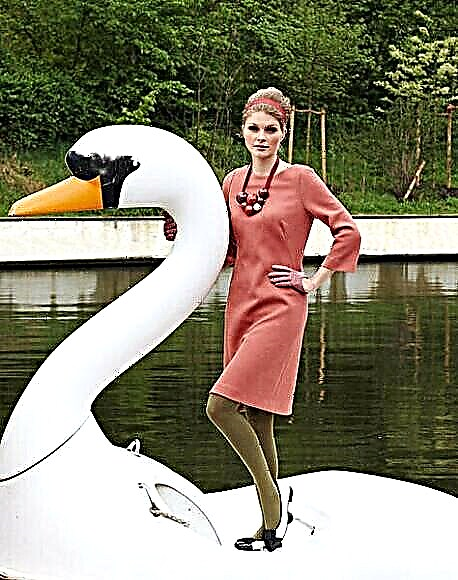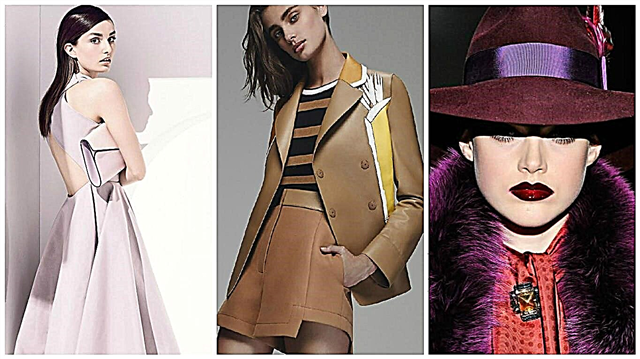Turning a simple blouse or modest dress into a model with a romantic sound is very simple! It is enough to decorate the product with ruffles, frills or frills.
Ruffles, frills and ruffles are often confused. Despite their obvious external similarity, nevertheless they are different details, therefore, let's figure out what is their fundamental difference from each other.
Ruffles, frills and shuttlecocks: how not to ruin a figure
Ruffles

Quilling (from the French "ruche"), as a decorative element in clothes, appeared in Russia in the second half of the 18th century, but gained its special popularity much later. In the XIX century, ruffles abundantly decorated the cutouts of dresses, decorated sleeves and hats.
Quilling is, as a rule, a narrow straight strip of fabric, which is added along, along the entire length, exactly in the middle of the part. Asymmetric variations are also acceptable when the strip is cut a little wider than usual and is added a little to the right or left of the midline of the part. In any case, ruffles will be located on both sides of the part (cut strip). Then the ruffles are sewn to the product exactly in the sewing seeding.
If there is not enough fabric, you can sew a composite ruffle from several parts (strips).
The ruffles are single-layer and multi-layer. Single-layered ruffles can be made with a fastener strap, for example, in a blouse.
- Special offer

- 1
- 2
- 3
- 4
Ruffles and ruffles: how to adjust the silhouette and not make mistakes
Frill

Ruffles are always cut in a straight line. At the same time, it is possible to cut the part, both along the lobar and across the fabric. Then the frill is trimmed along one long edge to the desired width and only then sewn to the product, laying the stitch on the sewing machine close to the stitching line.
- Special offer

- 1
- 2
- 3
- 4
Ruffles are an excellent solution for the disposal of scraps of fabric that you have left from past sewing projects. You can sew from them a charming little skirt for a girl from multi-colored frills:
Three-ruffled full skirt
Or decorate the finished thing with a frill:
How to make a frill and decorate her pullover
Shuttlecocks

Shuttlecocks, unlike ruffles and ruffles, do not need to be trimmed unless you are aiming to achieve maximum splendor of this detail. Due to the cut, one side of the shuttlecock is straight and the other is wavy.
- Special offer

- 1
- 2
- 3
- 4
If the model does not provide a shuttlecock, and you want to decorate it, for example, with a neckline or lengthen it with the help of frill sleeves, you can cut this romantic detail even without a pattern:
How to model a shuttlecock without a pattern
Or use a ready-made solution from another model:
We sew a dress and a top with shuttlecocks, one pattern
In addition, shuttlecocks are also used as a decorative element in the interior, most often they sew curtains partially or completely with shuttlecocks:
How to sew curtains with shuttlecocks
In order for open sections of shuttlecocks to look neat and the edge to lie in waves, they must be correctly processed, for example, on an overlock by a role seam or a narrow zigzag stitch on a sewing machine. Even a novice can do this, details in our master class:
How to process the edge with a narrow zigzag stitch
In addition, there are so-called complex ruffles or ruffles. Their main difference from their counterparts in the fabric used, for example, pleated and in an unusual form, when the ruffles are made from a strip on which one-sided or oncoming folds have previously been laid. A striking example of a complex decorative element is a frill in the form of hearts, which is traditionally decorated with a classic dirndl:
Do-it-yourself heart-shaped rim



